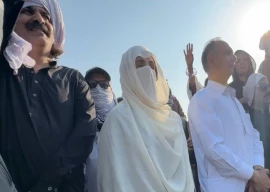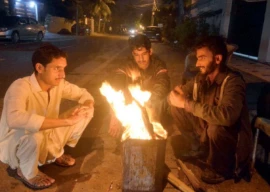
The delegation is led by Dr Henia Dakkak and Country Head Jose Ferraris, who plan to evaluate the destruction caused by the floods and estimate the magnitude of the disaster so that “every affected person can get relief more easily”.
“The present emergency is not a small emergency, it is above the scale of the tsunami and the impact of this disaster will persist for many years on the people of Pakistan,” Dakkak and Ferraris said.
The government cannot handle a disaster of this scale alone and neither can any one agency, they said, adding that all nations have to unite to help Pakistan.
Due to a lack of information, there have been many “misunderstandings”, said the delegation. “We are here to clear up all misunderstandings, to evaluate and present actual facts to other nations so that the relief work can be carried out more smoothly,” they said.
The reason the international community was slow in acting was the confusion regarding the scale of the disaster, but “now a lot UN agencies are providing a lot of support to the government.”
The UN is trying to help build trust so that more relief can be provided to the flood survivors.
The maternal, neonatal and child health programme’s director Dr Farooq Akhtar said that they have designed stationary and mobile medical camps with the help of the UN to overcome health issues in relief camps.
Earlier, the UNFPA delegation and a MNCH team visited the affected areas of Ghotki, Sukkur and Shikarpur. They also visited medical camps established by MNCH in these areas.
Published in The Express Tribune, August 30th, 2010.
1729161093-0/liam-(4)1729161093-0-405x300.webp)
















COMMENTS
Comments are moderated and generally will be posted if they are on-topic and not abusive.
For more information, please see our Comments FAQ